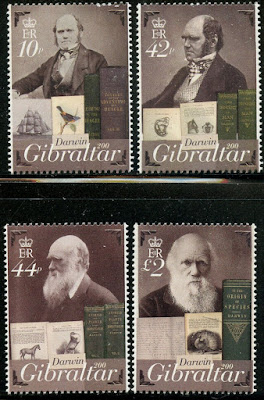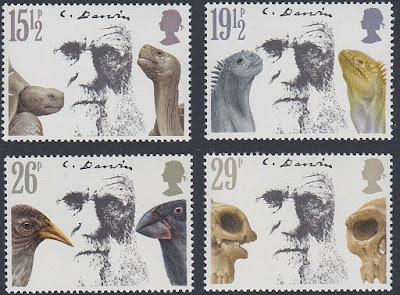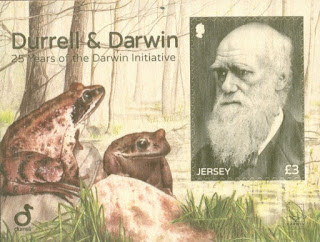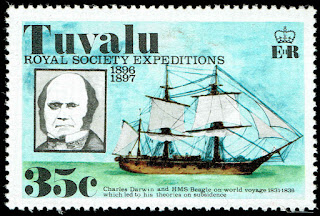Here are some events that happened on November 24th. It could be an event or a person that died or was born on that day
1642 – Abel Tasman becomes the first European to discover the island Van Diemen's Land (later renamed Tasmania).
Abel Janszoon Tasman (1603 – 10 October 1659) was a Dutch seafarer, explorer, and merchant, best known for his voyages of 1642 and 1644 in the service of the Dutch East India Company (VOC). He was the first known European explorer to reach the islands of Van Diemen's Land (now Tasmania) and New Zealand, and to sight the Fiji islands.
Tasman's ten-month voyage in 1642–43 had significant consequences. By circumnavigating Australia (albeit at a distance) Tasman proved that the small fifth continent was not joined to any larger sixth continent, such as the long-imagined Southern Continent. Further, Tasman's suggestion that New Zealand was the western side of that Southern Continent was seized upon by many European cartographers who, for the next century, depicted New Zealand as the west coast of a Terra Australis rising gradually from the waters around Tierra del Fuego. This theory was eventually disproved when Captain Cook circumnavigated New Zealand in 1769.
1859 – Charles Darwin publishes On the Origin of Species.
Charles Robert Darwin (12 February 1809 – 19 April 1882) was an English naturalist, geologist and biologist, best known for his contributions to the science of evolution. His proposition that all species of life have descended over time from common ancestors is now widely accepted, and considered a foundational concept in science. In a joint publication with Alfred Russel Wallace, he introduced his scientific theory that this branching pattern of evolution resulted from a process that he called natural selection, in which the struggle for existence has a similar effect to the artificial selection involved in selective breeding. Darwin has been described as one of the most influential figures in human history, and he was honoured by burial in Westminster Abbey.
Darwin published his theory of evolution with compelling evidence in his 1859 book On the Origin of Species. By the 1870s, the scientific community and a majority of the educated public had accepted evolution as a fact. However, many favoured competing explanations which gave only a minor role to natural selection, and it was not until the emergence of the modern evolutionary synthesis from the 1930s to the 1950s that a broad consensus developed in which natural selection was the basic mechanism of evolution. Darwin's scientific discovery is the unifying theory of the life sciences, explaining the diversity of life.
Darwin's early interest in nature led him to neglect his medical education at the University of Edinburgh; instead, he helped to investigate marine invertebrates. Studies at the University of Cambridge (Christ's College) encouraged his passion for natural science. His five-year voyage on HMS Beagle established him as an eminent geologist whose observations and theories supported Charles Lyell's conception of gradual geological change, and publication of his journal of the voyage made him famous as a popular author.
Puzzled by the geographical distribution of wildlife and fossils he collected on the voyage, Darwin began detailed investigations, and in 1838 conceived his theory of natural selection. Although he discussed his ideas with several naturalists, he needed time for extensive research and his geological work had priority. He was writing up his theory in 1858 when Alfred Russel Wallace sent him an essay that described the same idea, prompting immediate joint publication of both of their theories. Darwin's work established evolutionary descent with modification as the dominant scientific explanation of diversification in nature. In 1871 he examined human evolution and sexual selection in The Descent of Man, and Selection in Relation to Sex, followed by The Expression of the Emotions in Man and Animals (1872). His research on plants was published in a series of books, and in his final book, The Formation of Vegetable Mould, through the Actions of Worms (1881), he examined earthworms and their effect on soil.
Stamps from Gibraltar, Great Britain, Jersey and Tuvalu commemorating Darwin
1991 Died: Freddie Mercury, Tanzanian-English singer-songwriter, lead vocalist of Queen, and producer (b. 1946)
Freddie Mercury (born Farrokh Bulsara; 5 September 1946 – 24 November 1991) was a British singer, songwriter, record producer, and lead vocalist of the rock band Queen. Regarded as one of the greatest lead singers in the history of rock music, he was known for his flamboyant stage persona and four-octave vocal range. Mercury defied the conventions of a rock frontman, with his highly theatrical style influencing the artistic direction of Queen.
Born in 1946 in Zanzibar to Parsi-Indian parents, he attended English-style boarding schools in India from the age of eight and returned to Zanzibar after secondary school. In 1964, his family fled the Zanzibar Revolution, moving to Middlesex, England. Having studied and written music for years, he formed Queen in 1970 with guitarist Brian May and drummer Roger Taylor. Mercury wrote numerous hits for Queen, including "Killer Queen", "Bohemian Rhapsody", "Somebody to Love", "We Are the Champions", "Don't Stop Me Now", and "Crazy Little Thing Called Love". His charismatic stage performances often saw him interact with the audience, as displayed at the 1985 Live Aid concert. He also led a solo career and served as a producer and guest musician for other artists.
Mercury died in 1991 at age 45 due to complications from AIDS. He confirmed the day before his death that he had contracted the disease, having been diagnosed in 1987. Mercury had continued to record with Queen following his diagnosis, and he was posthumously featured on the band’s final album, Made in Heaven (1995). In 1992, his tribute concert was held at Wembley Stadium. His career with Queen was dramatised in the 2018 biopic Bohemian Rhapsody.
As a member of Queen, Mercury was posthumously inducted into the Rock and Roll Hall of Fame in 2001, the Songwriters Hall of Fame in 2003, and the UK Music Hall of Fame in 2004. In 1990, he and the other Queen members were awarded the Brit Award for Outstanding Contribution to British Music, and one year after his death Mercury was awarded it individually. In 2005, Queen were awarded an Ivor Novello Award for Outstanding Song Collection from the British Academy of Songwriters, Composers, and Authors. In 2002, Mercury ranked number 58 in the BBC's poll of the 100 Greatest Britons.
Great Britain stamps depicting Freddie Mercury and Queen









No comments:
Post a Comment